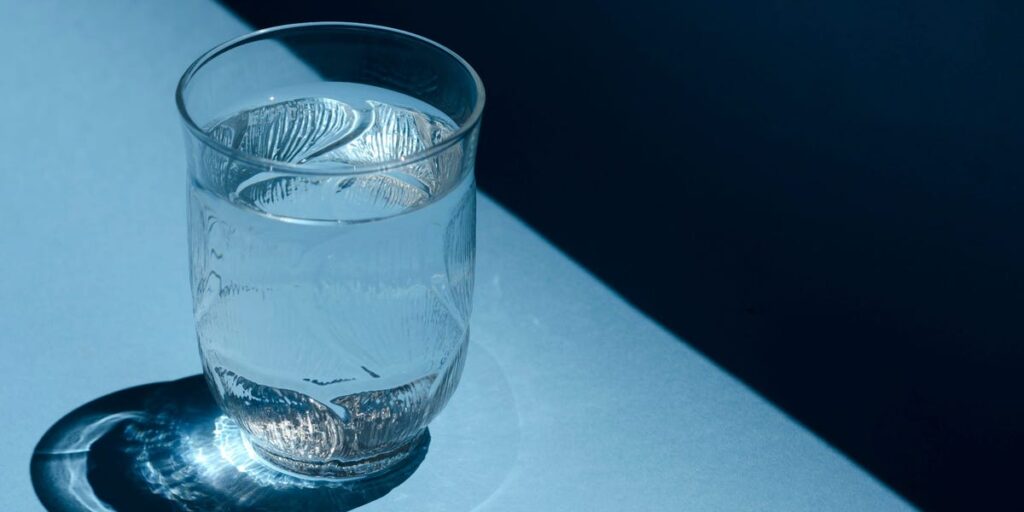Every morning before my first cup of coffee, I sip a tall glass of water with a pinch of Celtic sea salt in the hopes of kickstarting my hydration for the day.
I’ve been doing this for years, but it’s having a moment on social media right now. Influencers on Instagram and TikTok are downing sea-salted lemon water in the hopes of achieving glowing skin, better sleep, and even faster weight loss.
So I asked a dietitian: Is expensive sea salt a legit health hack?
“This has definitely become a popular trend I’m seeing across social media,” said Angie Asche, registered dietitian with Eleat Sports Nutrition. “While it can be helpful for some, it’s pretty unnecessary for most.”
The question of whether to salt or not to salt your water depends on factors like your exercise habits, diet, and health history. Here’s what I learned.
Why longevity bros love sea salt
Salt water is a go-to for people in the longevity world looking to boost their hydration. I recently spoke to a longevity doctor who makes it part of his morning routine, and a veteran Navy SEAL who swears by it.
Sodium, the main nutrient in salt, is part of a class of minerals called electrolytes, which help regulate the fluid in our cells. Sweating a lot or drinking too much water without replenishing electrolytes can deplete or dilute the supply in your body. The consequences of electrolyte imbalance can range from a mild headache to a life-threatening seizure
It’s not just water that keeps you hydrated. Sodium, from food or supplements, helps maintain the balance.
Not all salt is the same.
Regular table salt is processed from salt mines, so it’s uniform in texture, color, and taste. Other salts from around the world can contain trace minerals that make them unique.
For instance, pink Himalayan salt is mined but often less processed, leaving larger crystals that contain iron, zinc, and magnesium.
Celtic sea salt, which I use, comes from evaporated seawater on the Atlantic coast and contains potassium, magnesium, and calcium.
However, Asche said the nutritional difference between table salt and fancy salt is small. She’s not convinced it’s enough to break the bank over, especially if you’re just adding a pinch.
“These are in such small amounts that they really do not amount to much, especially when using just a pinch,” she said.
Should you add sea salt to your water?
I don’t really want to stop adding a salty little razzle-dazzle to my drinking water. Remembering a pinch of salt in my morning glass of water has become something of a ritual. It helps ensure I’m actually drinking a glass of water in the morning, and it seems to make me feel better overall.
Fortunately, Asche said I might be the perfect candidate for it.
“Heavy sweaters, highly active people, and people who eat a diet that’s primarily whole foods — with very little ultra-processed foods, which are often high in sodium — would likely see the greatest benefit to something like this,” Asche said.
I check all three of those boxes, training nearly every day, often for long hours in the heat, and cooking most of my own meals.
But should you be salting your water? That depends.
A pinch of salt is roughly 1/8 of a teaspoon, and about 300 mg of sodium. The typical recommended daily sodium intake for adults is 1,500 to 2,600 milligrams. Consuming more than that on a regular basis is linked to high blood pressure and increased risk of heart attack and stroke.
If you eat a lot of packaged food or takeout, you probably get more than enough sodium already.
“Adding extra salt to your water could cause more harm than good,” Asche said. “I would keep this in mind and factor it into your total daily sodium intake to make sure you’re not overdoing it.”
The bottom line
- Asche’s big tip: Keep a tall glass of water by your bedside so you can start hydrating as soon as you wake up. This is great for your skin and overall health.
- It’s OK to drink electrolytes if you want to! Still, aim to get 75% of your daily hydration from plain water. The remaining 25% can have electrolytes.
- I plan to stay salty, if only because a fancy sprinkle of sea salt tricks me into drinking more water than I would otherwise.
Read the full article here
















